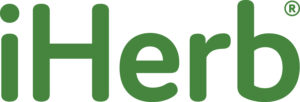
Sterols are fat molecules in the cell membranes of animals and plants with several functions, including a role in making hormones. Cholesterol is the major sterol in humans. We consume it in our diets and our bodies make it as well. Phytosterols come from plants and we can only get them from our diet, as our bodies don’t make them. Both kinds of sterols circulate in our blood and tissues although we have 100’s of times more cholesterol than phytosterols in circulation.
People who consume foods rich in phytosterols (also called plant sterols) tend to have lower LDL levels but to get measurable reductions in LDL we need to consume at least 800 mg and up to 2,000 mg a day. Most of us consume only 150-400 mg daily. Beta-sitosterol is the most common plant sterol and it’s important to read the label to know what you are getting.

Plant sterols reduce cholesterol by replacing cholesterol in the intestines and blocking absorption, and there seems to be an additive effect when phytosterols are consumed in conjunction with cholesterol-lowering medications.
Foods rich in plant sterols include avocados, nuts (pistachios, pecans, almonds, cashews), sesame seeds, and dark chocolate. Unrefined corn and vegetable oils also contain plant sterols along with omega-6 fats. Beta-sitosterol is absorbed best when consumed with fat (taking it with fish oil is a good idea). Plant sterols are effective when consumed once a day or over the course of the day.
In addition to supporting healthy cholesterol levels, beta-sitosterol has been shown to help men who have enlarged prostate, also known as BPH, by improving urinary flow and emptying of the bladder. Beta-sitosterol also supports breast, lung, stomach, and colon health.
Nutrition Consultant
For more information contact:
support@wileysfinest.com



